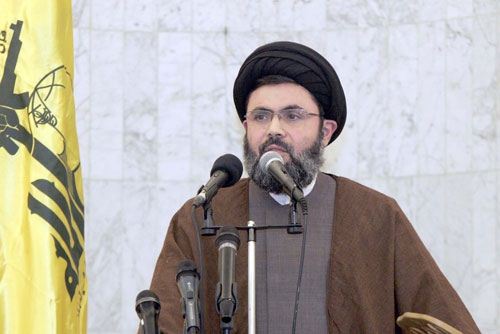Head of Hezbollah’s Executive Council Sayyed Hashem Safieddine said that at the time we came under attack in Baalbek, we kept patient and sought to calm and contain the situation and not let the country be driven into sedition
Head of Hezbollah’s Executive Council Sayyed Hashem Safieddine said that at the time we came under attack in Baalbek, we kept patient and sought to calm and contain the situation and not let the country be driven into sedition, but nevertheless some voices went out against us using the language of sedition and sectarianism.
“From the first moment of the incident in Baalbek, we said that the State and the security forces are the only ones authorized to handle these events as all the events in all areas are being handled,” Sayyed Safieddine said.
Sayyed Safieddine was speaking on Sunday as Hezbollah and Baalbek residents held a funeral for the martyrs Imad Ballouk and Ali al-Berzawi, who were killed in Saturday’s clashes.
The Lebanese army carried out patrols and set up checkpoints in Baalbek on Sunday after five people were killed in clashes in Baalbek’s al-Qalaa marketplace amid cautious calm in the city.
Funeral procession proceeded from Imam Khomeini Huseiniyah in Baalbek, with the participation of political and clerical figures down to the martyrs cemetery in the city, where the head of Hezbollah’s Shariah Council Sheikh Mohammad Yazbek led the mourners who turned out en masse for the funeral.
“What happened in Baalbek is very painful and it is what we have been warning against and asking the state to shoulder its responsibility,” Sheikh Yazbek said. “The attack and the killing brought us to a point which we do not accept as we are in need of people to help prevent sectarian and confessional strife.”
“Through the blood of our martyrs, we urge all those keen on this country's safety to protect our country from those who are tampering with its security,” he added.
Municipal officials in Baalbek also condemned the fighting, saying it contradicted the city’s traditions of coexistence. “What happened is rejected and is now behind us, and everyone has to work to prevent it from recurring,” said Hamad Hasan, the head of the municipality, at a meeting of local authorities and clerics.